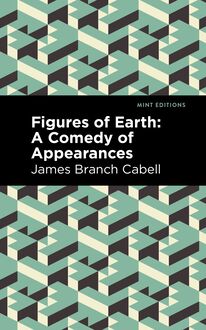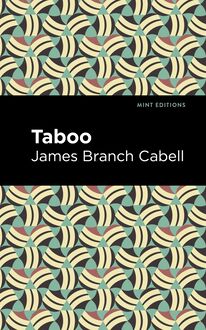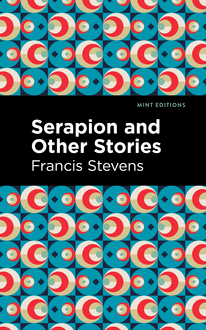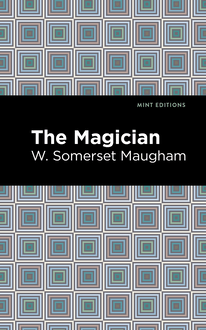-
 Univers
Univers
-
 Ebooks
Ebooks
-
 Livres audio
Livres audio
-
 Presse
Presse
-
 Podcasts
Podcasts
-
 BD
BD
-
 Documents
Documents
-
- Cours
- Révisions
- Ressources pédagogiques
- Sciences de l’éducation
- Manuels scolaires
- Langues
- Travaux de classe
- Annales de BEP
- Etudes supérieures
- Maternelle et primaire
- Fiches de lecture
- Orientation scolaire
- Méthodologie
- Corrigés de devoir
- Annales d’examens et concours
- Annales du bac
- Annales du brevet
- Rapports de stage
La lecture à portée de main
Vous pourrez modifier la taille du texte de cet ouvrage
Découvre YouScribe en t'inscrivant gratuitement
Je m'inscrisDécouvre YouScribe en t'inscrivant gratuitement
Je m'inscrisEn savoir plus
Vous pourrez modifier la taille du texte de cet ouvrage
En savoir plus

Description
The Line of Love (1913) is a collection of comic fantasy tales by James Branch Cabell. Set in a world where history and fantasy collide, where a lowly swineherd can rise to be Count of Poictesme, The Line of Love is one of Cabell’s best-known works of fiction, and is included in a series of novels, essays, and poems known as the Biography of the Life of Manuel.“It is a tale which they narrate in Poictesme, telling how love began between Florian de Puysange and Adelaide de la Forêt. They tell also how young Florian had earlier fancied other women for one reason or another; but that this, he knew, was the great love of his life, and a love which would endure unchanged as long as his life lasted.” On the night of his wedding to the lovely Adelaide de la Forêt, Florian de Puysange has a strange feeling that something is missing. Stepping outside to gather his wits about him, he remembers his dear friend Tiburce, dead for five years. At that moment, his comrade appears before him, alive but with an alien tone to his voice. Recalling the pact they made to drink in celebration of whomever married first, Florian wanders into the garden to make good on his promise. Set in a fictionalized France of the 13th century, The Line of Love is a captivating collection of tales and legends from a mythical world not so different from our own. Cabell’s work has long been described as escapist, his novels and stories derided as fantastic and obsessive recreations of a world lost long ago. To read The Line of Love, however, is to understand that the issues therein—the struggle for power, the unspoken distance between men and women—were vastly important not only at the time of its publication, but in our own, divisive world. With a beautifully designed cover and professionally typeset manuscript, this edition of James Branch Cabell’s The Line of Love is a classic of fantasy and romance reimagined for modern readers.
Sujets
Informations
| Publié par | Mint Editions |
| Date de parution | 03 août 2021 |
| Nombre de lectures | 0 |
| EAN13 | 9781513297224 |
| Langue | English |
Informations légales : prix de location à la page 0,0500€. Cette information est donnée uniquement à titre indicatif conformément à la législation en vigueur.
Extrait
The Line of Love
James Branch Cabell
The Line of Love was first published in 1905.
This edition published by Mint Editions 2021.
ISBN 9781513295725 | E-ISBN 9781513297224
Published by Mint Editions®
minteditionbooks.com
Publishing Director: Jennifer Newens
Design & Production: Rachel Lopez Metzger
Project Manager: Micaela Clark
Typesetting: Westchester Publishing Services
C ONTENTS T HE E PISTLE D EDICATORY I. T HE E PISODE C ALLED T HE W EDDING J EST II. T HE E PISODE C ALLED A DHELMAR AT P UYSANGE III. T HE E PISODE C ALLED L OVE- L ETTERS OF F ALSTAFF IV. T HE E PISODE C ALLED “ S WEET A DELAIS” V. T HE E PISODE C ALLED I N N ECESSITY’S M ORTAR VI. T HE E PISODE C ALLED T HE C ONSPIRACY OF A RNAYE VII. T HE E PISODE C ALLED T HE C ASTLE OF C ONTENT VIII. T HE E PISODE C ALLED I N U RSULA’S G ARDEN IX. T HE E PISODE C ALLED P ORCELAIN C UPS X. T HE E NVOI C ALLED S EMPER I DEM
T HE E PISTLE D EDICATORY
“In elect utteraunce to make memoriall,
To thee for souccour, to thee for helpe I call,
Mine homely rudeness and dryghness to expell
With the freshe waters of Elyconys well.”
M Y D EAR M RS. G RUNDY
You may have observed that nowadays we rank the love-story among the comfits of literature; and we do this for the excellent reason that man is a thinking animal by courtesy rather than usage.
Rightly considered, the most trivial love-affair is of staggering import. Who are we to question this, when nine-tenths of us owe our existence to a summer flirtation? And while our graver economic and social and psychic “problems” (to settle some one of which is nowadays the object of all ponderable fiction) are doubtless worthy of most serious consideration, you will find, my dear madam, that frivolous love-affairs, little and big, were shaping history and playing spillikins with sceptres long before any of these delectable matters were thought of.
Yes, even the most talked-about “questions of the day” are sometimes worthy of consideration; but were it not for the kisses of remote years and the high gropings of hearts no longer animate, there would be none to accord them this same consideration, and a void world would teeter about the sun, silent and naked as an orange. Love is an illusion, if you will; but always through this illusion, alone, has the next generation been rendered possible, and all endearing human idiocies, including “questions of the day,” have been maintained.
Love, then, is no trifle. And literature, mimicking life at a respectful distance, may very reasonably be permitted an occasional reference to the corner-stone of all that exists. For in life “a trivial little love-story” is a matter more frequently aspersed than found. Viewed in the light of its consequences, any love-affair is of gigantic signification, inasmuch as the most trivial is a part of Nature’s unending and, some say, her only labor, toward the peopling of the worlds.
She is uninventive, if you will, this Nature, but she is tireless. Generation by generation she brings it about that for a period weak men may stalk as demigods, while to every woman is granted at least one hour wherein to spurn the earth, a warm, breathing angel. Generation by generation does Nature thus betrick humanity, that humanity may endure.
Here for a little—with the gracious connivance of Mr. R. E. Townsend, to whom all lyrics hereinafter should be accredited—I have followed Nature, the arch-trickster. Through her monstrous tapestry I have traced out for you the windings of a single thread. It is parti-colored, this thread—now black for a mourning sign, and now scarlet where blood has stained it, and now brilliancy itself—for the tinsel of young love (if, as wise men tell us, it be but tinsel), at least makes a prodigiously fine appearance until time tarnish it. I entreat you, dear lady, to accept this traced-out thread with assurances of my most distinguished regard.
The gift is not great. Hereinafter is recorded nothing more weighty than the follies of young persons, perpetrated in a lost world which when compared with your ladyship’s present planet seems rather callow. Hereinafter are only love-stories, and nowadays nobody takes love-making very seriously…
And truly, my dear madam, I dare say the Pompeiians did not take Vesuvius very seriously; it was merely an eligible spot for a f ê te champ ê tre . And when gaunt fishermen first preached Christ about the highways, depend upon it, that was not taken very seriously, either. Credat Judaeus ; but all sensible folk—such as you and I, my dear madam—passed on with a tolerant shrug, knowing “their doctrine could be held of no sane man.”
APRIL 30, 1293—MAY 1, 1323
“Pus vezem de novelh florir pratz, e vergiers reverdezir rius e fontanas esclarzir, ben deu quascus lo joy jauzir don es jauzens.”
It would in ordinary circumstances be my endeavor to tell you, first of all, just whom the following tale concerns. Yet to do this is not expedient, since any such attempt could not but revive the question as to whose son was Florian de Puysange?
No gain is to be had by resuscitating the mouldy scandal: and, indeed, it does not matter a button, nowadays, that in Poictesme, toward the end of the thirteenth century, there were elderly persons who considered the young Vicomte de Puysange to exhibit an indiscreet resemblance to Jurgen the pawnbroker. In the wild youth of Jurgen, when Jurgen was a practising poet (declared these persons), Jurgen had been very intimate with the former Vicomte de Puysange, now dead, for the two men had much in common. Oh, a great deal more in common, said these gossips, than the poor vicomte ever suspected, as you can see for yourself. That was the extent of the scandal, now happily forgotten, which we must at outset agree to ignore.
All this was in Poictesme, whither the young vicomte had come a-wooing the oldest daughter of the Comte de la For ê t. The whispering and the nods did not much trouble Messire Jurgen, who merely observed that he was used to the buffets of a censorious world; young Florian never heard of this furtive chatter; and certainly what people said in Poictesme did not at all perturb the vicomte’s mother, that elderly and pious lady, Madame F é lise de Puysange, at her remote home in Normandy. The principals taking the affair thus quietly, we may with profit emulate them. So I let lapse this delicate matter of young Florian’s paternity, and begin with his wedding.
I
T HE E PISODE C ALLED T HE W EDDING J EST
1. Concerning Several Compacts
I T IS A TALE WHICH they narrate in Poictesme, telling how love began between Florian de Puysange and Adelaide de la For ê t. They tell also how young Florian had earlier fancied other women for one reason or another; but that this, he knew, was the great love of his life, and a love which would endure unchanged as long as his life lasted.
And the tale tells how the Comte de la For ê t stroked a gray beard, and said, “Well, after all, Puysange is a good fief—”
“As if that mattered!” cried his daughter, indignantly. “My father, you are a deplorably sordid person.”
“My dear,” replied the old gentleman, “it does matter. Fiefs last.”
So he gave his consent to the match, and the two young people were married on Walburga’s Eve, on the day that ends April.
And they narrate how Florian de Puysange was vexed by a thought that was in his mind. He did not know what this thought was. But something he had overlooked; something there was he had meant to do, and had not done: and a troubling consciousness of this lurked at the back of his mind like a small formless cloud. All day, while bustling about other matters, he had groped toward this unapprehended thought.
Now he had it: Tiburce.
The young Vicomte de Puysange stood in the doorway, looking back into the bright hall where they of Storisende were dancing at his marriage feast. His wife, for a whole half-hour his wife, was dancing with handsome Etienne de N é rac. Her glance met Florian’s, and Adelaide flashed him an especial smile. Her hand went out as though to touch him, for all that the width of the hall severed them.
Florian remembered presently to smile back at her. Then he went out of the castle into a starless night that was as quiet as an unvoiced menace. A small and hard and gnarled-looking moon ruled over the dusk’s secrecy. The moon this night, afloat in a luminous gray void, somehow reminded Florian of a glistening and unripe huge apple.
The foliage about him moved at most as a sleeper breathes, while Florian descended eastward through walled gardens, and so came to the graveyard. White mists were rising, such mists as the witches of Amneran notoriously evoked in these parts on each Walburga’s Eve to purchase recreations which squeamishness leaves undescribed.
For five years now Tiburce d’Arnaye had lain there. Florian thought of his dead comrade and of the love which had been between them—a love more perfect and deeper and higher than commonly exists between men—and the thought came to Florian, and was petulantly thrust away, that Adelaide loved ignorantly where Tiburce d’Arnaye had loved with comprehension. Yes, he had known almost the worst of Florian de Puysange, this dear lad who, none the less, had flung himself between Black Torrismond’s sword and the breast of Florian de Puysange. And it seemed to Florian unfair that all should prosper with him, and Tiburce lie there imprisoned in dirt which shut away the color and variousness of things and the drollness of things, wherein Tiburce d’Arnaye had taken such joy. And Tiburce, it seemed to Florian—for this was a strange night—was struggling futilely under all that dirt, which shut out movement, and clogged the mouth of Tiburce, and would not let him speak; and was struggling to voice a desire which was unsatisfied and hopeless.
“O comrade dear,” said Florian, “you who loved merriment, there is a feast afoot on this strange night, and my heart is sad that you are not her
-
 Univers
Univers
-
 Ebooks
Ebooks
-
 Livres audio
Livres audio
-
 Presse
Presse
-
 Podcasts
Podcasts
-
 BD
BD
-
 Documents
Documents
-
Jeunesse
-
Littérature
-
Ressources professionnelles
-
Santé et bien-être
-
Savoirs
-
Education
-
Loisirs et hobbies
-
Art, musique et cinéma
-
Actualité et débat de société
-
Jeunesse
-
Littérature
-
Ressources professionnelles
-
Santé et bien-être
-
Savoirs
-
Education
-
Loisirs et hobbies
-
Art, musique et cinéma
-
Actualité et débat de société
-
Actualités
-
Lifestyle
-
Presse jeunesse
-
Presse professionnelle
-
Pratique
-
Presse sportive
-
Presse internationale
-
Culture & Médias
-
Action et Aventures
-
Science-fiction et Fantasy
-
Société
-
Jeunesse
-
Littérature
-
Ressources professionnelles
-
Santé et bien-être
-
Savoirs
-
Education
-
Loisirs et hobbies
-
Art, musique et cinéma
-
Actualité et débat de société
- Cours
- Révisions
- Ressources pédagogiques
- Sciences de l’éducation
- Manuels scolaires
- Langues
- Travaux de classe
- Annales de BEP
- Etudes supérieures
- Maternelle et primaire
- Fiches de lecture
- Orientation scolaire
- Méthodologie
- Corrigés de devoir
- Annales d’examens et concours
- Annales du bac
- Annales du brevet
- Rapports de stage




















